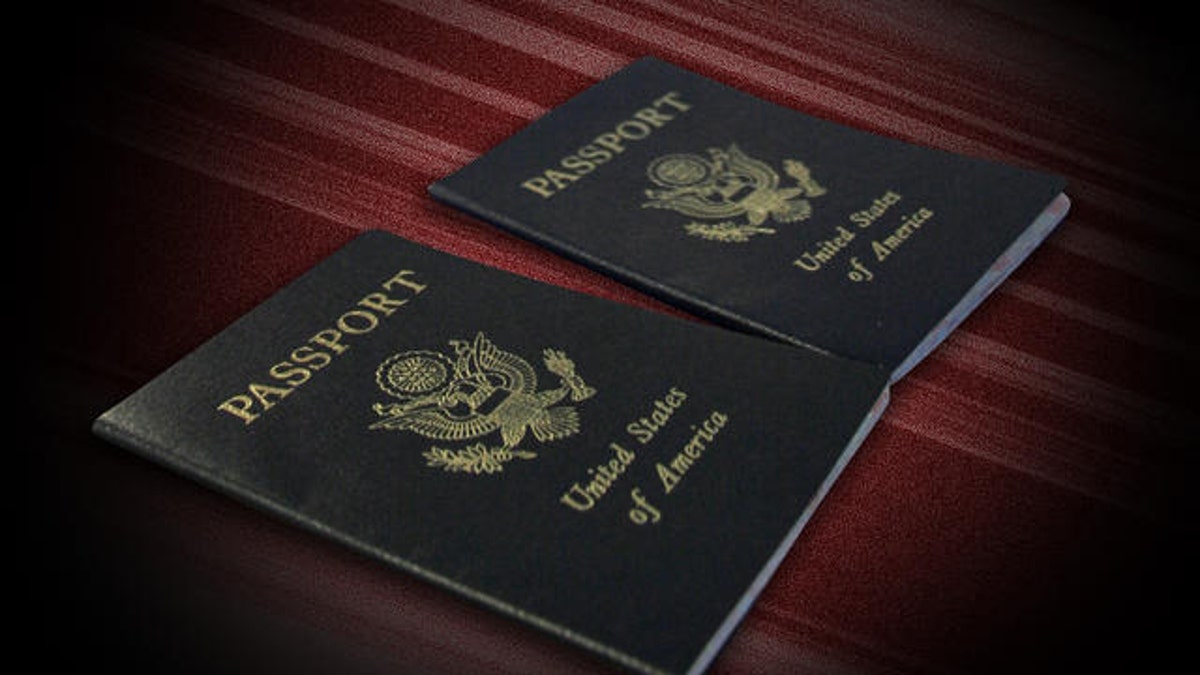
Bill Moore, 56, from Denver, Colorado checks in at an airline counter in the resort city of Cancun, Mexico, Tuesday, Jan. 23, 2007. New American regulations designed to enhance security that went into effect this Jan. 23, known as the Western Travel Initiative, require everyone, including Americans, to show a valid passport in order to enter the U.S. by air. (AP Photo/Israel Leal) (AP)
Owe thousands in back taxes and need to get out of the country? No problem. Under current law, the State Department can't withhold a passport over unpaid taxes.
But that could change, if lawmakers decide to run with the findings of a new government report that suggests Uncle Sam could recoup billions by blocking delinquent Americans from getting passports until they settle their debts to the IRS.
The Government Accountability Office, at the request of Congress, released a study Monday examining how the government could leverage the passport process to recover unpaid taxes. The office found that in fiscal 2008, Americans who received passports owed a collective $5.8 billion to the IRS. The debt of the internationally traveling public, though, is likely far larger, considering that estimate only factored in a year's worth of recipients.
The GAO report projected that linking passports and tax obligations could lead to a windfall for the IRS, if Congress opts to draft legislation making that possible.
"The federal government has a vital interest in efficiently and effectively collecting the billions of dollars of taxes owed under current law," the report said. "Such legislation could have the potential to help generate substantial collections of known unpaid federal taxes and increase tax compliance for tens of millions of Americans holding passports."
It's not clear whether Congress wants to go down that road. The study was apparently conducted at the request of Sens. Max Baucus, D-Mont., and Charles Grassley, R-Iowa. Representatives for the senators did not return requests for comment.
The GAO said that if Congress wants to extract tax debt with the help of the State Department, it would have to authorize State to deny passports on that criteria and authorize the IRS to share its tax data. The GAO also suggested determining whether some individuals should be exempted for "national security purposes" and setting a threshold for when a tax debt would be high enough to trigger the denial of a passport.
After all, plenty of travelers likely owe a modest amount of back taxes without even realizing it -- the GAO report also showed that only a small percentage of those who received passports in 2008 were delinquent.
The report suggested privacy issues would have to be dealt with if Congress pursues the change.
But the office pointed out that U.S. law already allows the State Department to deny passports for other reasons -- ranging from an applicant owing more than $2,500 in child support to having an outstanding felony warrant.
The GAO report examined a handful of severe cases where individuals received passports despite owing money to the U.S. government. In one case, an individual identified as a "gambler" owed nearly $47 million, despite filing tax returns claiming no outstanding balance with the IRS.
Another individual owed $40 million and did not file a personal income tax return for four years.
"IRS officials stated that screening passport applicants for federal tax debts would likely improve tax collections," the GAO report said.




